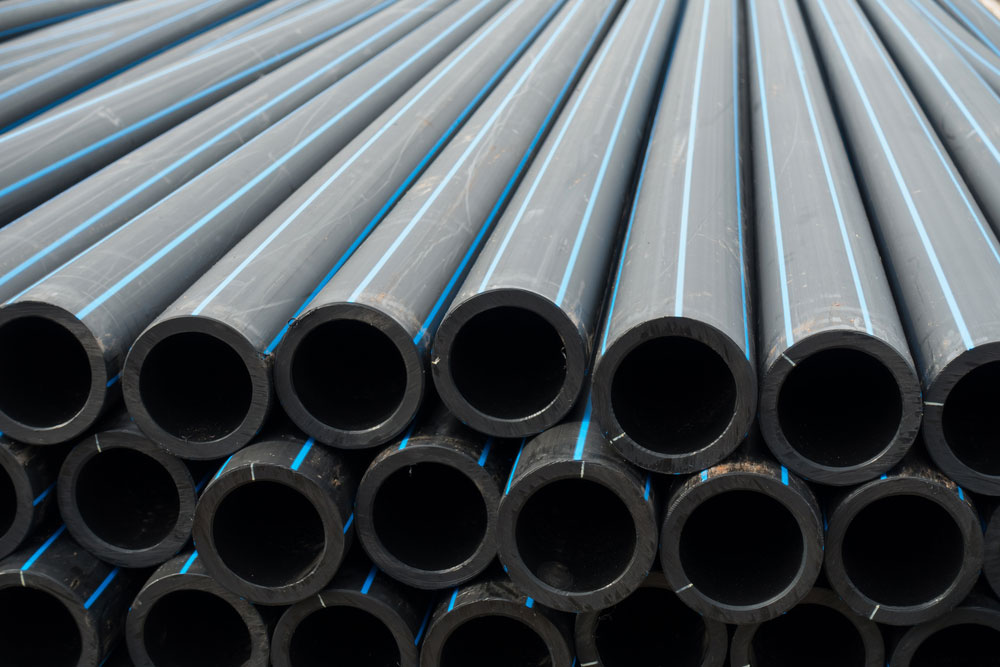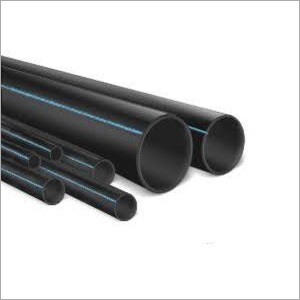Where Contractors Can Get Midland TX HDPE Pipe Fittings in Stock for Oilfield Applications
Understanding the Trick Conveniences of HDPE Pipe for Water and Wastewater Administration
Using HDPE pipe in water and wastewater management presents many advantages that warrant factor to consider. Its extraordinary longevity and lengthy life expectancy make it a preferred option for many projects. In addition, the product's resistance to deterioration and chemical damages boosts its reliability in various environments. Nonetheless, the benefits prolong beyond simply longevity and resistance. Exploring its cost-effectiveness and ecological influence exposes a lot more engaging reasons for its prevalent adoption in contemporary framework
Exceptional Sturdiness and Longevity

HDPE pipeline sticks out for its phenomenal sturdiness and long life, making it a recommended option in water administration systems. Built from high-density polyethylene, these pipes can hold up against substantial pressure and anxiety, ensuring reliable efficiency over time. Their robust nature permits them to endure severe ecological conditions, consisting of temperature variations and soil motions, which can trigger other materials to fail.
The life-span of HDPE pipelines typically surpasses 50 years, offering an economical option for municipalities and industries alike. Additionally, the product's light-weight residential or commercial properties simplify installation, decreasing labor expenses and timeframes. This resilience minimizes the demand for regular fixings or replacements, even more improving its economic allure.
In water monitoring applications, the dependability of HDPE pipes indicates fewer interruptions and boosted solution continuity, making them integral to lasting framework advancement. The combination of sturdiness and longevity solidifies HDPE's duty as a foundation in reliable water administration solutions.

Resistance to Rust and Chemical Damages
While several materials catch corrosion and chemical damages in time, HDPE pipes exhibit impressive resistance, making them suitable for different water monitoring applications. This durability stems from the molecular framework of high-density polyethylene, which is inherently non-reactive and does not corrode like metals or break down from exposure to rough chemicals. Because of this, HDPE is very efficient in environments with hostile materials, such as wastewater systems that may have acids, bases, and organic solvents.
In addition, HDPE pipes can withstand ecological factors such as dirt acidity and saline conditions, better enhancing their viability for diverse applications (hdpe pipe fittings Midland TX). Their capacity to maintain architectural stability with time decreases the threat of leaks and failures, which is important in making certain the safety and security and reliability of water distribution and wastewater monitoring systems. As a result, the resistance to corrosion and chemical damage substantially adds to the overall efficiency and longevity of HDPE piping options
Cost-Effectiveness and Economic Benefits
When taking into consideration the financial implications of water administration systems, the cost-effectiveness of HDPE pipelines becomes apparent. These pipes provide lower installation and maintenance expenses compared to conventional materials like metal or concrete. Their lightweight nature streamlines transport and installation, resulting in decreased labor costs. Furthermore, HDPE pipes exhibit a lengthy life-span, often going beyond half a century, which equates to fewer substitutes and lasting cost savings.
The resistance of HDPE to deterioration and chemical damage decreases the demand for costly fixings and replacements. The pipes likewise support reliable water flow, reducing power expenses connected with pumping systems. By mitigating leakages and water loss, HDPE pipes add to substantial economic benefits for districts and markets alike. Overall, the initial financial Full Report investment in HDPE piping can generate considerable financial returns over the life-span of the water administration system, making it a sensible option for sustainable facilities development.
Ecological Sustainability and Reduced Influence

Convenience and Flexibility in Installment
As a result of their one-of-a-kind residential or commercial properties, HDPE pipes use amazing versatility and versatility in installment, making them suitable for a variety of applications. Their Home Page light-weight nature enables simpler handling and transport, lowering labor costs and installation time. HDPE pipelines can be bent and formed to fit numerous terrains and task needs, which is particularly valuable in challenging atmospheres.
Furthermore, their resistance to deterioration and chemical damages permits setup in varied setups without the demand for specialized safety finishes. The capacity to fuse joints develops a continual, leak-free system, boosting the overall honesty and reliability of the installation. HDPE's flexibility also accommodates ground movement, lowering the threat of damage in areas vulnerable to changing dirt. On the whole, these qualities make HDPE pipes not only versatile however likewise a favored selection for water and wastewater monitoring systems.
Regularly Asked Inquiries
Exactly How Does HDPE Pipe Compare to PVC in Water Administration Applications?
HDPE pipe provides superior versatility, resistance to rust, and sturdiness contrasted to PVC. Its lighter weight promotes simpler setup, while its lengthy life-span minimizes substitute expenses, making HDPE a recommended option in water monitoring applications.
What Is the Life Expectancy of HDPE Pipeline Under Normal Conditions?
Under common problems, HDPE pipes can have a lifespan varying from 50 to 100 years. Their durability and resistance to deterioration add to their long-term efficiency in different applications, making them a trusted option for infrastructure.
Are HDPE Piping Recyclable After Their Life Span?
Yes, HDPE pipes are recyclable after their life span. American Plastics HDPE Pipe for Oilfield. They can be processed and repurposed right into brand-new products, greatly minimizing environmental influence and promoting sustainability within the sector, making them a green choice for piping remedies
What Is the Setup Refine for HDPE Pipes?
The setup procedure for HDPE pipelines includes website preparation, trenching, pipe combination or mechanical signing up with, backfilling, and pressure testing. Appropriate strategies guarantee a durable and effective system for moving water and wastewater efficiently.
Can HDPE Pipes Be Utilized for Both Drinkable and Non-Potable Water Equipments?
Yes, HDPE pipelines can be made use of for both potable and non-potable water supply. Their flexibility, durability, and resistance to corrosion make them appropriate for numerous applications, making certain safe and effective transport of water in various contexts.